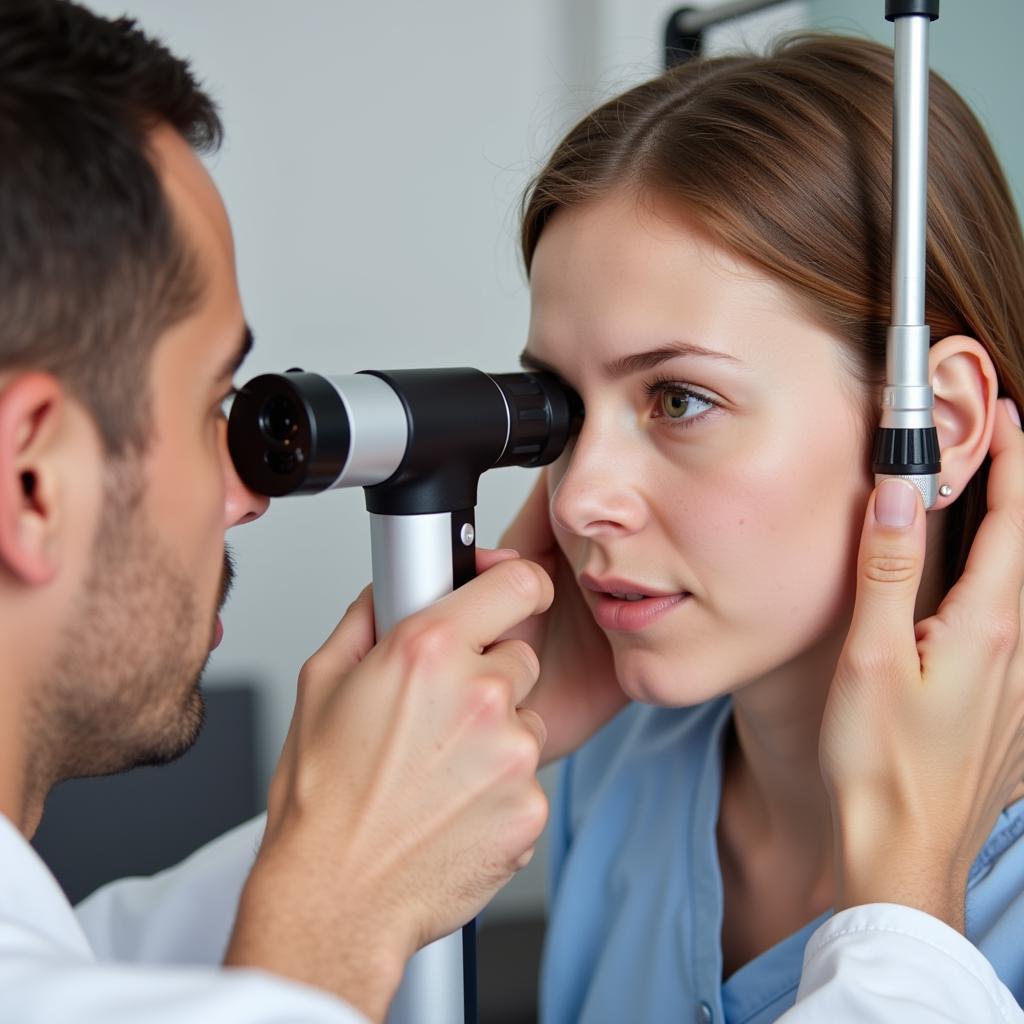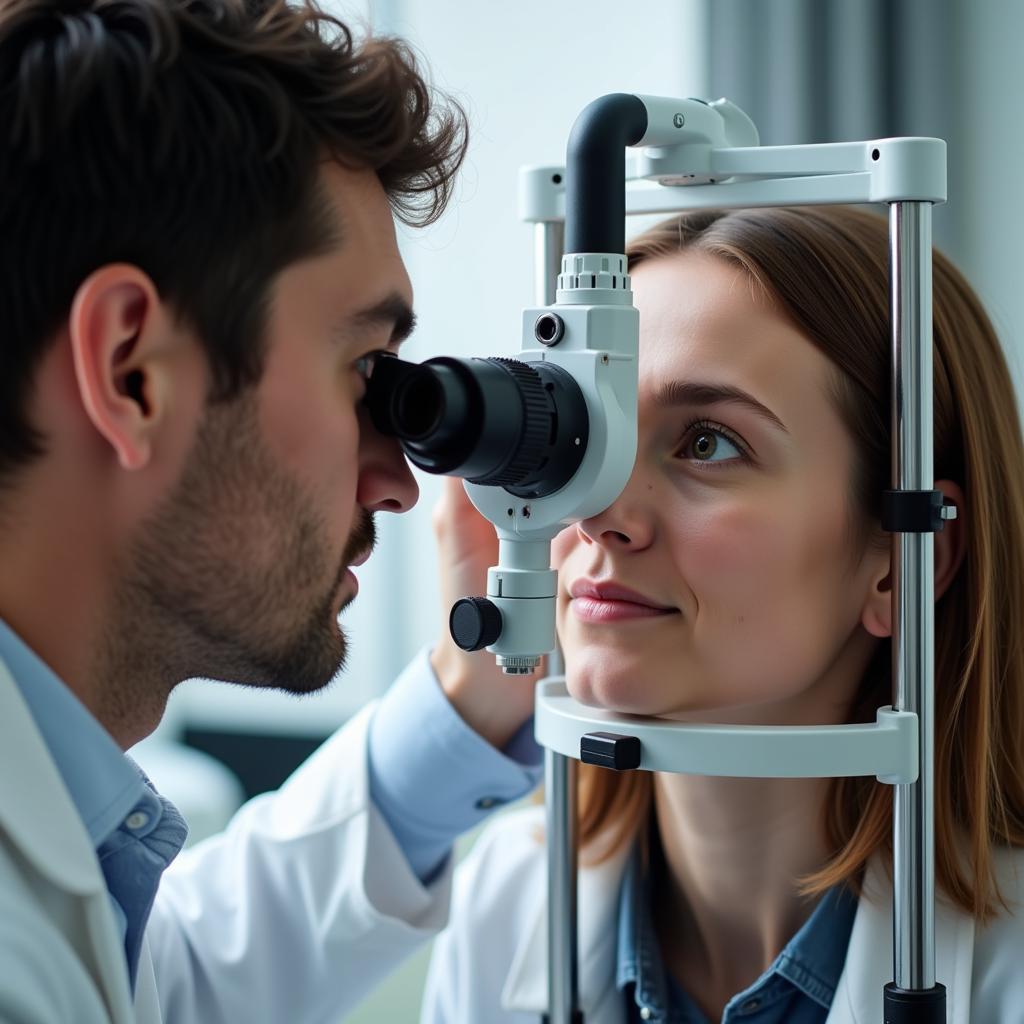ENT (Ear, Nose, and Throat) and Ophthalmology are two distinct medical specialties that often overlap, particularly when dealing with issues related to the head and face. This article will clarify the differences between ENT and Ophthalmology and guide you on choosing the right specialist for your specific needs.
What is ENT?
ENT specialists, also known as otolaryngologists, focus on diagnosing and treating conditions affecting the ears, nose, throat, head, and neck. Their expertise covers a wide range of issues, from hearing loss and sinus infections to head and neck cancers.
What is Ophthalmology?
Ophthalmologists are medical doctors specializing in eye and vision care. They diagnose and treat eye diseases, perform eye surgery, and prescribe corrective lenses. Their scope of practice ranges from common refractive errors like nearsightedness and farsightedness to complex conditions like glaucoma and cataracts.
Key Differences between ENT and Ophthalmology
The primary difference lies in their area of focus: ENT deals with the ears, nose, throat, head, and neck, while Ophthalmology focuses solely on the eyes. This distinction becomes crucial when deciding which specialist to consult for specific symptoms.
- ENT Focus: Ears, nose, throat, head, and neck. They address problems with hearing, balance, smell, taste, voice, and swallowing, as well as head and neck cancers.
- Ophthalmology Focus: Eyes and vision. They manage conditions related to vision, eye diseases, and eye injuries.
When to See an ENT
You should consult an ENT specialist if you experience:
- Hearing loss or tinnitus (ringing in the ears)
- Dizziness or balance problems
- Nasal congestion or sinus infections
- Sore throat, hoarseness, or difficulty swallowing
- Swollen lymph nodes in the neck
- Head and neck pain or masses
When to See an Ophthalmologist
You should see an ophthalmologist if you have:
- Blurred vision, double vision, or vision loss
- Eye pain, redness, or itching
- Flashing lights or floaters in your vision
- Dry eyes, watery eyes, or excessive tearing
- Difficulty seeing at night
- A family history of eye disease like glaucoma or macular degeneration
 Bác sĩ tai mũi họng đang khám bệnh nhân
Bác sĩ tai mũi họng đang khám bệnh nhân
ENT vs Ophthalmology: Overlapping Areas
While their core areas of expertise are distinct, there are some overlapping areas where both ENT and Ophthalmology may be involved. For example, conditions affecting the tear ducts, which are connected to the nasal passages, may require collaboration between both specialists. Similarly, certain orbital conditions and skull base tumors may necessitate a multidisciplinary approach involving both ENT and Ophthalmology.
Choosing the Right Specialist
If you’re unsure which specialist to see, it’s always a good idea to start with your primary care physician. They can assess your symptoms and refer you to the appropriate specialist. In some cases, you may need to see both an ENT and an ophthalmologist for comprehensive care.
 Bác sĩ nhãn khoa đang khám mắt bệnh nhân
Bác sĩ nhãn khoa đang khám mắt bệnh nhân
Conclusion
Understanding the differences between ENT and Ophthalmology is crucial for seeking appropriate medical care. By recognizing their respective areas of expertise, you can ensure you receive the most effective treatment for your specific condition. If you experience any issues related to your ears, nose, throat, head, neck, or eyes, consult with the appropriate specialist or your primary care physician for guidance.
FAQs
-
What is the difference between an optometrist and an ophthalmologist? An optometrist primarily provides vision care, including eye exams and prescribing glasses or contact lenses. An ophthalmologist is a medical doctor who can diagnose and treat eye diseases, perform surgery, and provide comprehensive eye care.
-
Can an ENT treat eye infections? No, eye infections should be treated by an ophthalmologist.
-
Can an ophthalmologist treat sinus problems? No, sinus problems fall under the expertise of an ENT specialist.
-
What should I do if I have both ear pain and blurred vision? Consult your primary care physician who can refer you to the appropriate specialists, potentially both an ENT and an ophthalmologist.
-
Do I need a referral to see an ENT or an ophthalmologist? While some specialists may accept self-referrals, it’s often best to consult your primary care physician first for appropriate guidance and referrals.
-
What if I experience dizziness and double vision? These symptoms could indicate a serious underlying condition. Seek immediate medical attention.
-
How often should I have my eyes checked? Regular eye exams are recommended, typically every one to two years, or more frequently depending on your age and risk factors.
Khi cần hỗ trợ hãy liên hệ Số Điện Thoại: 02838172459, Email: truyenthongbongda@gmail.com Hoặc đến địa chỉ: 596 Đ. Hậu Giang, P.12, Quận 6, Hồ Chí Minh 70000, Việt Nam. Chúng tôi có đội ngũ chăm sóc khách hàng 24/7.